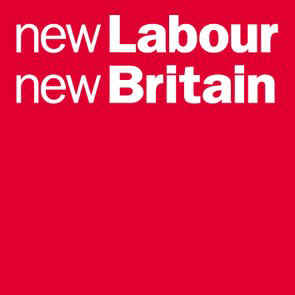New Labour, as a phrase, descriptor, perhaps even ideology, was largely a rhe torical device. Its purpose was made clear by Philip Gould in The Unfinished Revolution, the expose of how Labour was modernised into an election winning machine, it was created to delineate the Blair led party from that of his predecessors. It was a re-branding exercise, a marketing gimmick perhaps; fundamentally it was an outward representation of the fact that the party's policies were to be a fusion of the vague Third Way ideas emerging within the global socialist movement and the neo-liberalism established by Thatcher and Reagan during the 1980s. As such therefore New Labour in itself meant very little, only that it created another rhetorical device: 'Old Labour'.
torical device. Its purpose was made clear by Philip Gould in The Unfinished Revolution, the expose of how Labour was modernised into an election winning machine, it was created to delineate the Blair led party from that of his predecessors. It was a re-branding exercise, a marketing gimmick perhaps; fundamentally it was an outward representation of the fact that the party's policies were to be a fusion of the vague Third Way ideas emerging within the global socialist movement and the neo-liberalism established by Thatcher and Reagan during the 1980s. As such therefore New Labour in itself meant very little, only that it created another rhetorical device: 'Old Labour'.
 torical device. Its purpose was made clear by Philip Gould in The Unfinished Revolution, the expose of how Labour was modernised into an election winning machine, it was created to delineate the Blair led party from that of his predecessors. It was a re-branding exercise, a marketing gimmick perhaps; fundamentally it was an outward representation of the fact that the party's policies were to be a fusion of the vague Third Way ideas emerging within the global socialist movement and the neo-liberalism established by Thatcher and Reagan during the 1980s. As such therefore New Labour in itself meant very little, only that it created another rhetorical device: 'Old Labour'.
torical device. Its purpose was made clear by Philip Gould in The Unfinished Revolution, the expose of how Labour was modernised into an election winning machine, it was created to delineate the Blair led party from that of his predecessors. It was a re-branding exercise, a marketing gimmick perhaps; fundamentally it was an outward representation of the fact that the party's policies were to be a fusion of the vague Third Way ideas emerging within the global socialist movement and the neo-liberalism established by Thatcher and Reagan during the 1980s. As such therefore New Labour in itself meant very little, only that it created another rhetorical device: 'Old Labour'.But now we are told that New Labour has had its day, it is moribund, it will crawl up the curtain  and join the choir invisible on the day that Blair leaves No10 for the last time. These are the ideas advocated by Welsh First Minister, Rhodri Morgan, the man Blair never wanted to be in that position and who, like Ken Livingstone, found himself facing all manner of tactics designed to hinder his election. Though reasonably quiet in his dissent it appears he now wishes to comment on Labour's future at this seemingly important juncture.
and join the choir invisible on the day that Blair leaves No10 for the last time. These are the ideas advocated by Welsh First Minister, Rhodri Morgan, the man Blair never wanted to be in that position and who, like Ken Livingstone, found himself facing all manner of tactics designed to hinder his election. Though reasonably quiet in his dissent it appears he now wishes to comment on Labour's future at this seemingly important juncture.
 and join the choir invisible on the day that Blair leaves No10 for the last time. These are the ideas advocated by Welsh First Minister, Rhodri Morgan, the man Blair never wanted to be in that position and who, like Ken Livingstone, found himself facing all manner of tactics designed to hinder his election. Though reasonably quiet in his dissent it appears he now wishes to comment on Labour's future at this seemingly important juncture.
and join the choir invisible on the day that Blair leaves No10 for the last time. These are the ideas advocated by Welsh First Minister, Rhodri Morgan, the man Blair never wanted to be in that position and who, like Ken Livingstone, found himself facing all manner of tactics designed to hinder his election. Though reasonably quiet in his dissent it appears he now wishes to comment on Labour's future at this seemingly important juncture.Interestingly he appears to invoke rhetoric familiar to many from beer adverts; that New Labour "reached parts that other Labour programmes and projects and political leaders have not been able to reach". He also likens it to the Venus di Milo "you have to gawp with admiration at its quality and brilliance, but it is indisputably incomplete and beginning to show more than a few signs of its age"; harsh words indeed. He also calls for a 21st Century socialism, though without offering too much detail on what this means. So what is this all about?
The answer is: nothing! Though deemed newsworthy it appears as nothing more than rhetoric on rhetoric about rhetoric. The purpose of New Labour as a phrase was achieved, it was probably moribund by June 1997. Its symbolic value is more in other rhetoric that has become attached to the phrase: 'best when at our boldest', 'New Britain', those phrases that demonstrate being of the modern and not of the traditional or out-dated or conservative. Therefore as an idea 'newness' remains at large, perhaps the point Morgan should make is that Brown can no longer aspire to this given that after 10 years New Labour is no longer new and neither is he.
But does the rhetorical and symbolic aspects of New Labour remain, I argue that they do. Not in the Labour Party, not in this vague idea of 21st Century socialism that is almost beyond definition; no the symbolism that thrust Blair into office in 1997 is alive and well and being exploited by Cameron's Conservative Party. They may not be calling themselves the 'New Conservatives' but they attempt to invoke that new image coupled with not representing themselves as the party not in power so an alternative to the Labour that people seem to be becoming tired of.
Rhetorically, the symbolic associations of new have long escaped from No10, sl owly ebbed away by the familiarity that is unavoidable when in government. The clothes of New Labour are being borrowed and adapted to suit a new government in waiting, a new round of rhetoric begins as the Conservatives re-brand themselves in all ways but in name. Hence the fuzzy tree perhaps, though what this says rhetorically or symbolically is more than a little hard to grasp.
owly ebbed away by the familiarity that is unavoidable when in government. The clothes of New Labour are being borrowed and adapted to suit a new government in waiting, a new round of rhetoric begins as the Conservatives re-brand themselves in all ways but in name. Hence the fuzzy tree perhaps, though what this says rhetorically or symbolically is more than a little hard to grasp.
 owly ebbed away by the familiarity that is unavoidable when in government. The clothes of New Labour are being borrowed and adapted to suit a new government in waiting, a new round of rhetoric begins as the Conservatives re-brand themselves in all ways but in name. Hence the fuzzy tree perhaps, though what this says rhetorically or symbolically is more than a little hard to grasp.
owly ebbed away by the familiarity that is unavoidable when in government. The clothes of New Labour are being borrowed and adapted to suit a new government in waiting, a new round of rhetoric begins as the Conservatives re-brand themselves in all ways but in name. Hence the fuzzy tree perhaps, though what this says rhetorically or symbolically is more than a little hard to grasp.
No comments:
Post a Comment